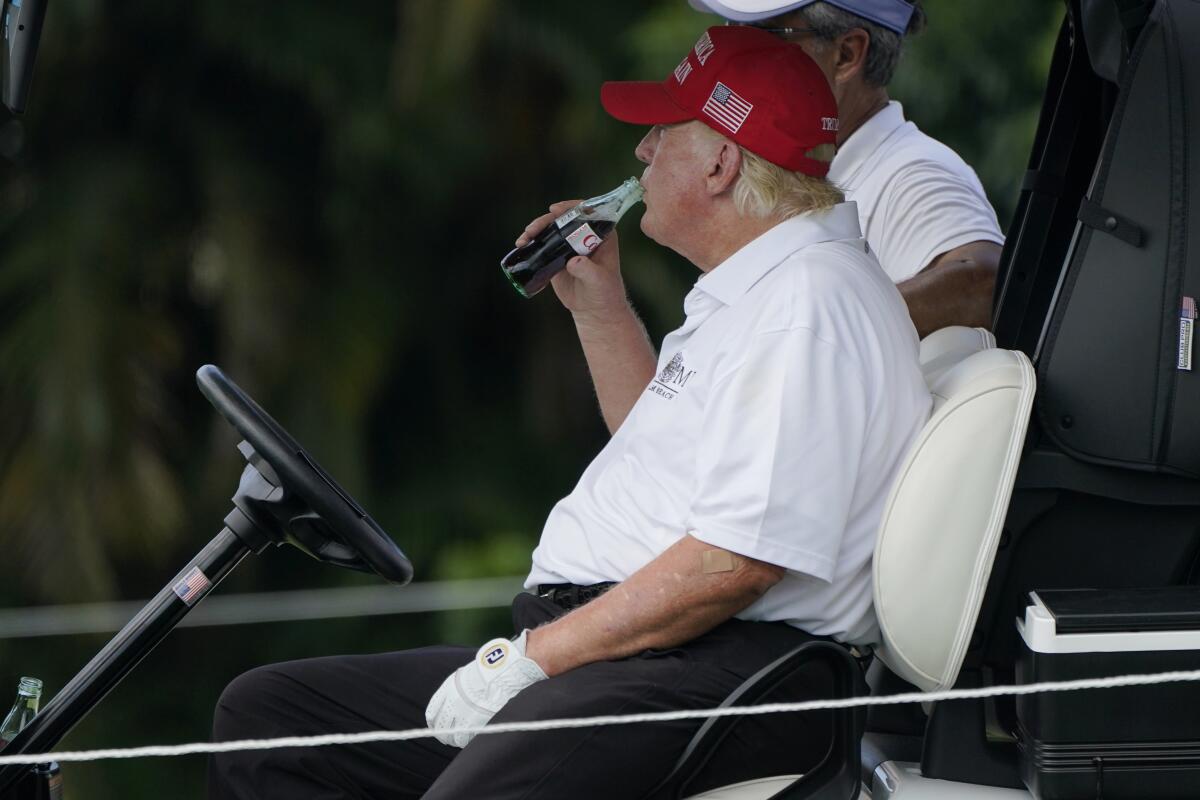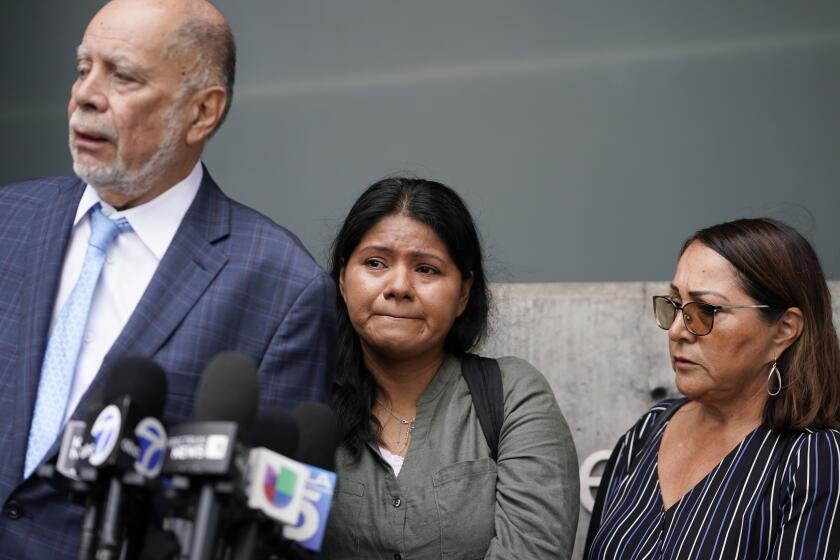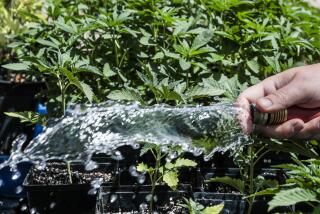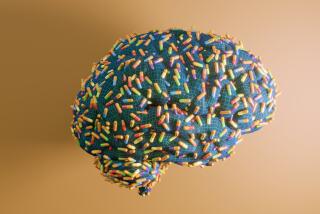Opinion: Donald Trump’s advice on drinking and drugs is ‘Don’t start.’ So what’s wrong with that?

In a Fox News interview last week, Donald Trump advised that the best way to avoid getting addicted to alcohol or drugs is to not start using them.
Now, the only time I didn’t vote for a Democrat, it was to vote for Bernie Sanders. So it pains me to say this, but — ugh — Trump is right.
The former president said he had watched incredibly “strong,” “powerful” and accomplished men, including his brother, start drinking and find that they just couldn’t stop. He couldn’t understand why they couldn’t stop; they just couldn’t.
Once again, he’s right.
So, he suggested, don’t start. His advice to the world about addiction could in fact be summed up as: “Just say no.” Which, theoretically, is right.
But when you live in a culture that is soaked in alcohol and quick to medicate almost any ailment with pills, it’s also impractical. More than impractical, it’s dangerous.
The late “Friends” star was famous for his mighty struggle with addiction. His honesty should change how we talk about sobriety and relapse, regardless of how he died.
Yes, if you don’t come into contact with anything that causes cancer, your chances of getting cancer will be significantly lower. Oh, you’ve already been in the sun, eaten meat or experienced stress? Well, then, maybe you should have thought about your choices! Good luck to you, though.
We’ve tried this approach before. Some of us are old enough to remember First Lady Nancy Reagan’s “Just say no” campaign. And while I’ve spent 12 years in various recovery rooms and heard hundreds of thousands of deeply diverse narratives of addiction and sobriety, I’ve never heard someone say, “Nancy Reagan said, ‘Just say no,’ and that was the day I quit forever.”
At the heart of this argument is the notion that willpower is always your best defense. Even as a child or teenager, you should resist billions of dollars in alcohol and drug advertising and embrace abstinence. You should learn from the mistakes of others at an early age.
I have a 6-year-old daughter. My first drink was at 12. So she’s halfway there.
Drug use has become deadlier for teens, and Southern California is an overdose hot spot.
What we know about addiction is that it’s about 40% to more than 70% determined by genetics. So my daughter’s chances are pretty good. Toss in my mother’s history, my grandfather’s history and so on, and the odds look even better, which is to say worse.
So what I want to scream at her is: “Just say no!” I think about all the times I almost died — from alcohol poisoning, drunk driving and more — and I really wish I could tell her never to drink and that she would listen.
There is an irrational but heartfelt desperation about it. I barely made it out alive. What if she doesn’t? Can’t she just say no?
And yet, at 6, she already disregards my advice. I already struggle to get her to finish eating anything healthy before she asks for dessert.
But if a friend eats something healthy? If a cousin mentions liking broccoli? She’ll give it a shot.
So it’s happening: Her circle of friends is helping her determine what she puts in her body. Their opinions mean a lot. And they will be the ones there with her the first time someone offers her a drink at a party.
I ask my sober friends with kids, “What do you tell them?” One I admire very much tells them, “If you ever struggle with it, I’ll be there for you.”
Acknowledging that it’s coming, like every aspect of letting go of a child, is terrifying. And for addicts, who know what’s coming for their kids, it’s nearly impossible. But the best parenting doesn’t prevent harm from happening; it helps build resilience for when it does.
I get “Just say no.” I wish it worked. But it simply doesn’t.
So instead, let’s try “I’ll be there for you.” Let’s talk about reducing harm, getting help and being honest.
I’m glad Trump is talking about addiction on Fox News. That’s a win, and I hope he does it again. Next time, though, I hope he talks about how we can all be there for the person who starts.
Sean Daniels is a person in long-term recovery who runs the Recovery Project in Sarasota, Fla., and is the anti-stigma director for Live Tampa Bay.
More to Read
A cure for the common opinion
Get thought-provoking perspectives with our weekly newsletter.
You may occasionally receive promotional content from the Los Angeles Times.








